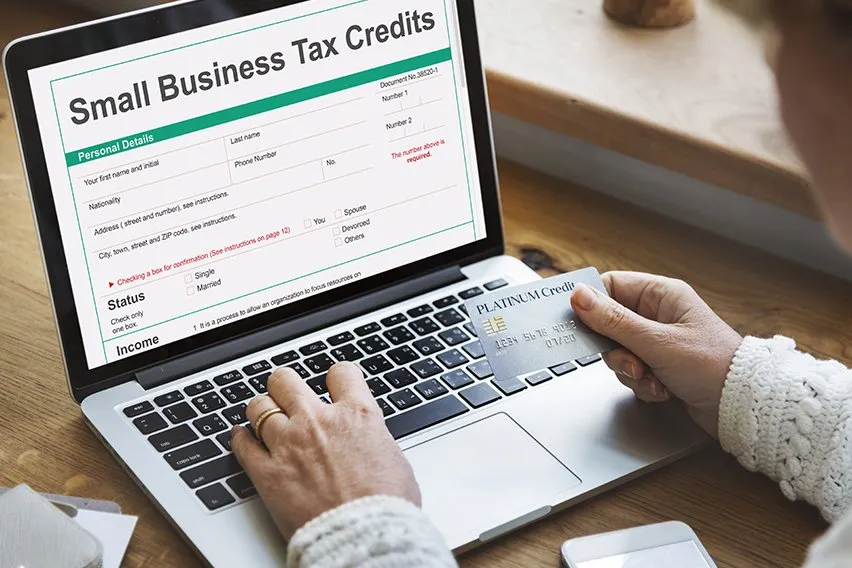Accredited Investor: Definition & Basics

When looking through finance articles, you may have come across the term “accredited investor.” There is a certain sophistication associated with this title, and its role in the financial world. If you’re looking to learn more about accredited investors and their role in business, keep reading! We’re covering all of the basics of accredited investors, as well as how to become one.
Here’s What We’ll Cover:
What is an Accredited Investor?
Why Do Requirements Have to Be Met?
Accredited Investors Purchase Unregistered Securities
What is the Process of Becoming an Accredited Investor?
The Pros of Being an Accredited Investor
The Cons of Being an Accredited Investor
What is an Accredited Investor?
The term accredited investor can refer to an individual or a business entity. Accredited investors are allowed to trade securities independently. This means that they may not be registered with financial authorities. They receive their access by satisfying at least one of several requirements. To be acknowledged as an accredited investor, one of the specifications below must be met.
Requirements for Individuals
When seeking accreditation as an individual, there are three pieces of criteria that can be met. A person must have an annual income exceeding $200,000. If reviewing joint income, that limit is set at $300,000. The same amount must be expected to be met during the following year, as well. The income level earned by the individual either alone or with a spouse must have been met over the last two years.
The income requirement cannot be met by showing one year of an individual income followed by one year of a joint income. It is required that the consecutive years must be individual or joint incomes, without mixing the two. However, income thresholds are not the only requirement that can be satisfied.
In addition to the income thresholds, an individual can qualify to be an accredited investor based on their net worth. To be an accredited investor, the net worth of an individual must exceed $1 million. This criteria can be met independently or jointly with a spouse. These private funds qualify an individual to be an accredited investor.

The last qualification for becoming an accredited investor as an individual has to do with employment. To be an accredited investor, an individual can work for a company issuing unregistered securities. They have to be in one of the following positions:
- General partner
- Executive officer
- Director
These positions make an individual a knowledgeable employee. This makes them qualified to invest funds.
Requirements for an Entity
The qualifications for an entity to be considered an accredited investor are simple. To obtain the accredited investor status, a company must have assets exceeding $5 million. Additionally, if the equity owners of a business are accredited investors, the business is one as well. That being said, the organization or company cannot be formed with the intent of purchasing specific securities.
Why Do Requirements Have to Be Met?
Regulators of stock markets and securities are in place to help protect investors. Protection of investors is their main function. As such, less knowledgeable investors need these investor protections. This helps them stay safe when using their funds to invest in companies. However, not all securities are available to the public, and the regulators cannot protect them. As such, the requirements are in place so that less experienced investors cannot take part in riskier investments.
Accredited investors are a way of making sure that average investors remain protected. It is assumed that someone with a financial cushion or sufficient knowledge can protect themselves. Additionally, individuals with professional knowledge should be informed enough to make wise decisions.
Accredited Investors Purchase Unregistered Securities
These individuals have demonstrated expertise in the financial sector, so they are legally allowed to do this. Many companies will only offer their securities to these investors directly. This option allows companies to avoid registering with authorities, which can save a lot of money. By offering securities to financial professionals directly, a company can generate cash flow. An accredited investor is likely to have an excess in funds. This means that they can contribute to the financial assets of a company.
In addition to being offered private securities, investors have access to other opportunities. These can include hedge funds, venture capital funds, and angel investing. These riskier investments are often exclusive to accredited investors.
What is the Process of Becoming an Accredited Investor?
There is no formal process, nor are there any professional certifications. If an individual wants to become a certified investor with an affiliated issuer, they can approach them. The entity that’s issuing securities may ask the individual to prove that they can qualify. This may come through a questionnaire, or through documentation. Some of these various attachments are good to have on hand:
- Account information for financial institutions
- Financial statements
- A balance sheet
- Tax returns
- W-2 forms
- Salary slips
- Letters from CPAs, tax advisors, investment brokers
Beyond all of this documentation, an issuer may also ask to run a credit report on the interested individual.
The Pros of Being an Accredited Investor
If you’re looking to become an accredited investor, there are a few advantages that come with it. Being an accredited investor status is desirable for some individuals. It grants them access to exclusive options. Check out all of the pros below.
Access to More Investment Opportunities
When an investor becomes accredited, they’re given access to far more investment opportunities. These can come in the form of unregistered securities. They can also be given access to hedge funds, private equity investments, and real estate investment providers. Unless an investor becomes accredited, they won’t be given access to these options.
Higher Rates of Return and Investment Diversity
When accredited, an investor typically sees a financial advantage over others. They’re given offers for investments that provide a higher rate of return than regulated investments. Another part of this financial advantage is the diversity they see. Portfolio diversification makes them more successful. This is because it allows them to invest in different industries.
An Established Reputation
The title “accredited investor” can make an investor’s reputation skyrocket. The title is desirable, but so is the position. Many companies want these investors to offer up their funds. They have large amounts of wealth, and often bring expertise to the table. As such, accredited investors have a good rep in the financial world.

The Cons of Being an Accredited Investor
While the title is desirable, it also comes with some disadvantages. These almost all have to do with money, and the amount required to invest. Take a look at all of the major cons below.
Higher Risk
One of the biggest cons of being an accredited investor is the amount of risk. Most opportunities have a much larger risk than the regulated options for investors. This can be catastrophic under the right conditions.
Large Minimum Investment Requirements
The exclusive opportunities granted to these investors often come with a high price tag. As such, they’re required to invest a large amount of money. This can make taking advantage of these opportunities costly, and financially stifling.
High Fees
The fees associated with managing investments for accredited investors are high. Often, they’ll reach upwards of 15%, which is very large in comparison to regulated investments.
Long Lockup Times
When you take advantage of exclusive opportunities, they can sometimes lock your funds up for a long period of time. This can be anywhere from 1 to 5 years, depending on the investment. Regular investments can be withdrawn at any time.
Key Takeaways
Being an accredited investor comes with a large amount of opportunities. However, becoming an accredited investor takes a lot of capital, or a lot of experience. Additionally, not all of the exclusive opportunities are worth it. They’re high risk, and can result in large losses. If you’re looking for more financial information like this, be sure to visit our resource hub. It has plenty of the information that you’re looking for!
RELATED ARTICLES
 How to Do Cash Flow Analysis? The Ultimate Guide
How to Do Cash Flow Analysis? The Ultimate Guide Small Business Deduction: Understand What You Should Know
Small Business Deduction: Understand What You Should Know How to Calculate CPP (Canada Pension Plan)
How to Calculate CPP (Canada Pension Plan) What Is a Weighted Decision Matrix & How Do You Use It?
What Is a Weighted Decision Matrix & How Do You Use It? What Are Pricing Strategies & 8 Common Strategies for Business
What Are Pricing Strategies & 8 Common Strategies for Business What Is Inventory Management? A Guide to Techniques & Methods
What Is Inventory Management? A Guide to Techniques & Methods